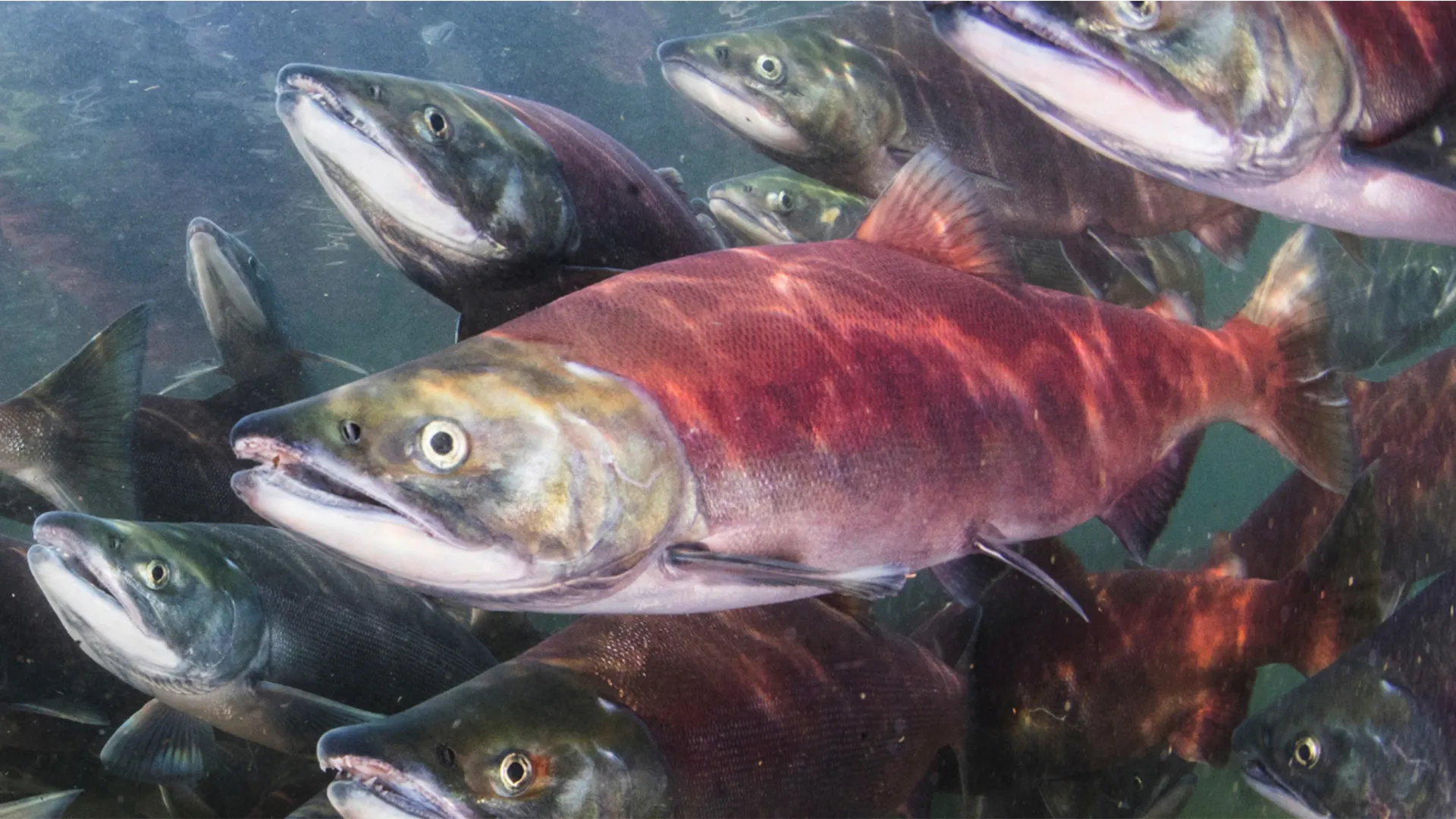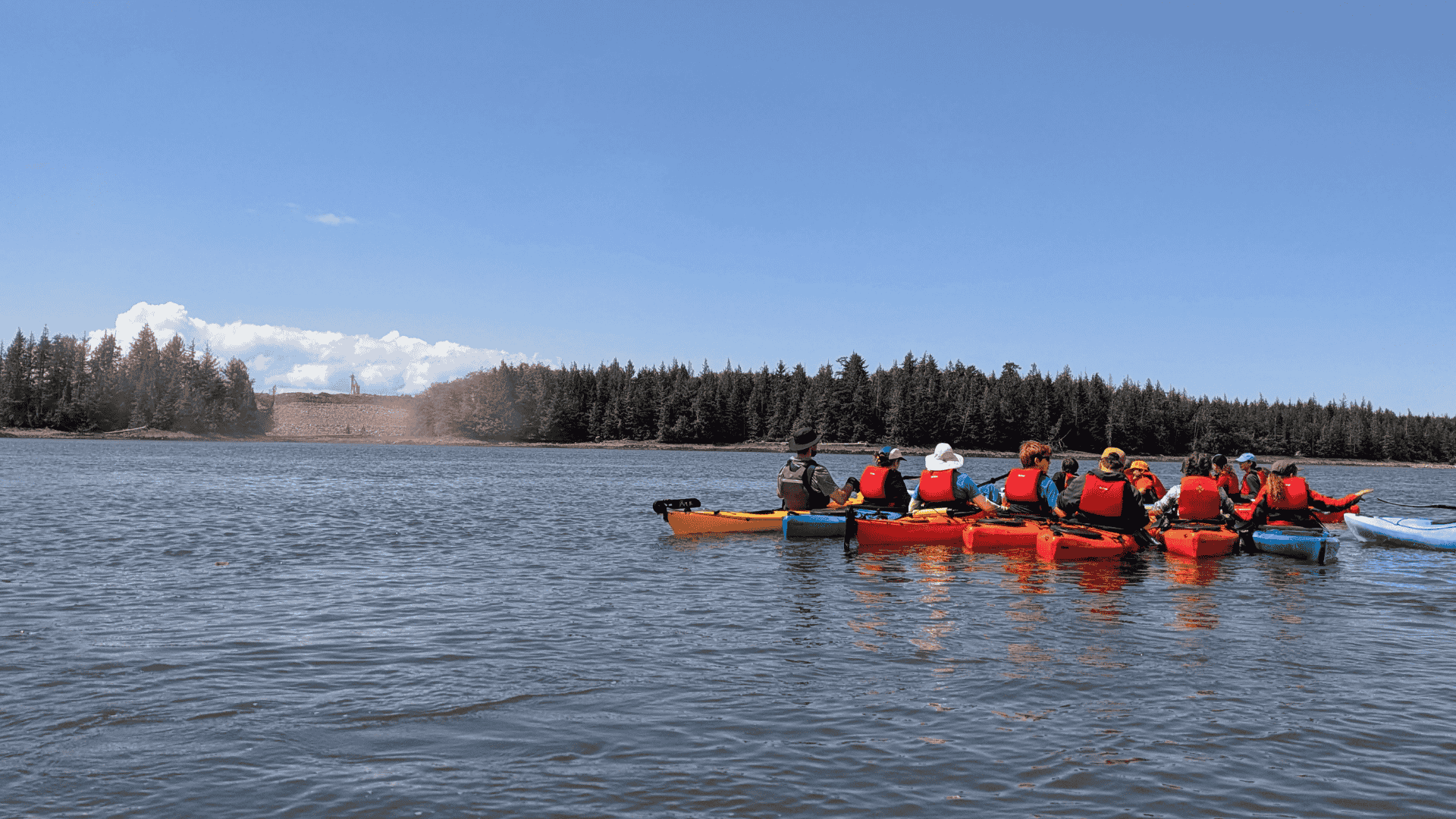SkeenaWild comments on Environmental Assessment for the Ksi Lisims LNG Project proposed for the Nass estuary.
SkeenaWild comments on Environmental Assessment for the Ksi Lisims LNG Project proposed for the Nass estuary.
We recently submitted our comments on the Environmental Assessment for the proposed Ksi Lisims LNG – Natural Gas Liquefaction and Marine Terminal Project (Ksi Lisims LNG).
This project, a collaborative effort between the Nisga’a Nation, Rockies LNG Limited Partnership, and Western LNG LLC, proposes to develop a floating natural gas liquefaction facility and marine export terminal at Wil Milit, situated on the northern end of Pearse Island on the northwest coast of British Columbia. Ksi Lisims LNG has been designed with the capacity to produce up to 12 million tonnes per annum of liquefied natural gas (LNG).
Considering the significance and scale of the project, this letter seeks to address several critical concerns to ensure that the environmental assessment process is conducted as thoroughly and transparently as possible and is in accordance with the most current scientific and regulatory standards.
Our comments highlight the number of impacts this project has on our wild salmon, their habitats, and Canada’s climate targets.
Impacts to Fish:
Juvenile salmon (Chinook, chum, pink, coho, and sockeye) were caught during brief surveys of the proposed Marine Terminal Area, but the Proponent failed to provide any further information. Collection of credible and comprehensive baseline data collection is critical for meaningful assessment of impacts to fish in this location.
Climate Impacts:
The mitigation proposed to address the climate impacts of the project is deficient. The development of new fossil fuel infrastructure poses a direct challenge to meeting global climate goals. The application for Ksi Lisims LNG asserts that it will contribute to reducing global greenhouse gas (GHG) emissions by replacing higher-emission fuels in Asia. However, it provides insufficient evidence to substantiate this claim and overlooks the estimated annual release of approximately 33 million tonnes of emissions resulting from the burning of this LNG, including upstream emissions, Methane emissions and full-cost accounting.
Electricity:
The application proposes drawing 4,700 GWh of electricity annually from the BC grid to power the Ksi Lisims LNG terminal. This substantial demand could have profound implications for the province, including its economy and emissions targets. The EAO should mandate the application to specify the effects on British Columbia’s economy and decarbonization efforts resulting from the diversion of electricity.
Economic Impacts:
Considering the potential decline in LNG demand in a world actively addressing climate change, the Proponent should be required by the EAO to assess the project’s viability under such circumstances. The concept of a “stranded asset” and the failure to deliver promised economic benefits are critical considerations not addressed in Ksi Lisims assertions relating to “community benefits” and “contributions to sustainability”. Furthermore, the project’s potential impact on global natural gas prices, affecting BC businesses and households, should be assessed by the EAO.
Impacts to Whales:
The proposed shipping route would have approximately 150 tankers annually passing through waters located near critical habitat designated for Northern Resident Killer Whales and is inhabited by diverse whale species. The EAO should insist on a thorough assessment of vessel noise impacts on whales and the risk of collisions with LNG tankers, particularly in an already busy shipping route.
Regulatory Considerations:
It is essential to consider the broader regulatory context when assessing the Ksi Lisims LNG project. Environmental Assessment Act, S.B.C. 2018, c. 51, s.25(2)(h) emphasizes the consideration of greenhouse gas emissions, including their effects on the province’s ability to meet targets under the Greenhouse Gas Reduction Targets Act. Additionally, the Impact Assessment Act, S.C. 2019, c. 28, requires the evaluation of factors that hinder or contribute to the Government of Canada’s ability to meet environmental obligations and climate commitments. It is crucial that the Chief Executive Assessment Officer has a clear understanding of the final federal emissions cap and its application to the project.
Associated Pipeline:
SkeenaWild urges the BCEAO to require a new environmental assessment for the associated gas pipeline infrastructure (Prince Rupert Gas Transmission) for the Ksi Lisims LNG project. The original environmental assessment certification was granted over ten years ago and is now outdated and no longer in accordance with the specification of the original proposal. We understand that PRGT is significantly revising the pipeline route and terminus for Ksi Lisims, and it is therefore important that BCEAO require a new process for affected Indigenous communities and the public to provide input on potential impacts.
In conclusion, our organization urges the Environmental Assessment Office to conduct a comprehensive and transparent environmental assessment of the Ksi Lisims LNG and PRGT projects, in the context of other cumulative impacts, and taking into account the aforementioned concerns and the broader regulatory context. This project’s potential environmental and climate implications must be rigorously evaluated to ensure the well-being of our region and its alignment with global climate goals.
For the full letter submission with further details
Add your own comments
(open until December 1, 2023)
Other News
-

SkeenaWild Assistant Director – Job Posting
SkeenaWild is seeking a skilled and committed Assistant Director to support the Executive Director in the effective operation of the organization. This position plays a…
-

Southeast Alaska’s 2025 Salmon Fishing Outlook
As the 2025 fishing season begins in Southeast Alaska, migrating salmon returning to rivers in British Columbia, such as the Skeena and Nass, face a…
-

The SkeenaWild Film & Photo Festival is back for 2025!
The 2025 SkeenaWild Film & Photo Festival is back for its 14th year! Submit your short film or photo showcasing the people, wildlife, and wild…
-

June Highlights: Outdoor Education with SkeenaWild
June Highlights: Outdoor Education with SkeenaWild June Events Kick Off a Summer of Salmon Stewardship Stream science, kayaking, and fry releases connect youth to salmon…
-

SkeenaWild Assistant Director – Job Posting
SkeenaWild is seeking a skilled and committed Assistant Director to support the Executive Director in the effective operation of the organization. This position plays a…
-

Southeast Alaska’s 2025 Salmon Fishing Outlook
As the 2025 fishing season begins in Southeast Alaska, migrating salmon returning to rivers in British Columbia, such as the Skeena and Nass, face a…
-

The SkeenaWild Film & Photo Festival is back for 2025!
The 2025 SkeenaWild Film & Photo Festival is back for its 14th year! Submit your short film or photo showcasing the people, wildlife, and wild…
-

June Highlights: Outdoor Education with SkeenaWild
June Highlights: Outdoor Education with SkeenaWild June Events Kick Off a Summer of Salmon Stewardship Stream science, kayaking, and fry releases connect youth to salmon…